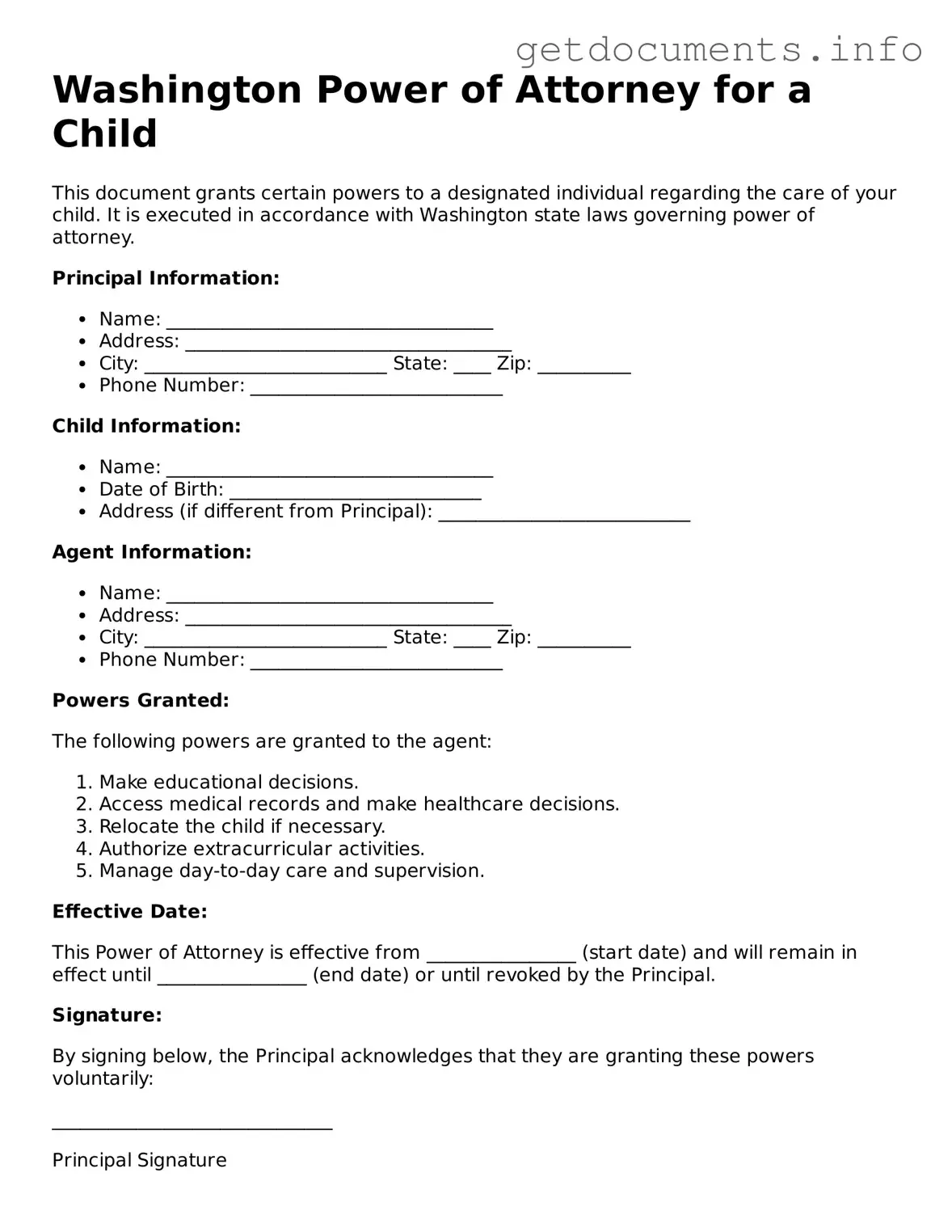Free Power of Attorney for a Child Template for Washington
The Washington Power of Attorney for a Child form allows a parent or legal guardian to designate another adult to make decisions for their child in specific situations. This legal document ensures that a trusted individual can step in when the parent is unavailable, providing peace of mind. If you’re ready to fill out the form, click the button below.
Access Power of Attorney for a Child Editor

Free Power of Attorney for a Child Template for Washington
Access Power of Attorney for a Child Editor
Got places to be? Complete the form fast
Fill out Power of Attorney for a Child online and avoid printing or scanning.
Access Power of Attorney for a Child Editor
or
⇩ PDF File
